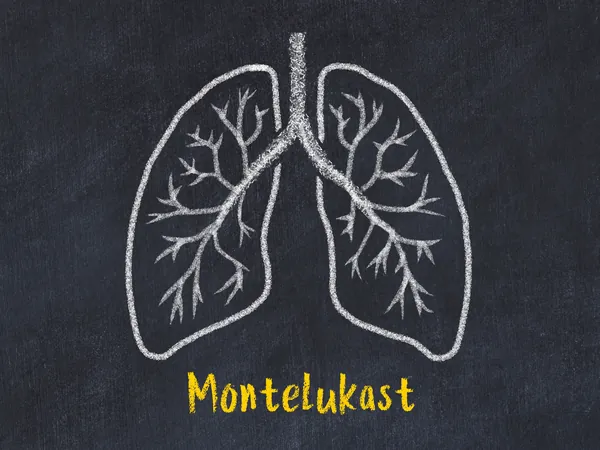
New Study Debunks Myths: Montelukast Isn't Linked to Neuropsychiatric Risks in Kids!
2025-01-21
Author: Ming
The Rising Concern
Montelukast, an effective leukotriene receptor antagonist, has seen a surge in usage over the years, particularly in children struggling with asthma who haven't responded adequately to standard treatments like inhaled corticosteroids (ICS) and short-acting beta-agonists (SABAs). However, a disturbing signal surfaced in 2008 when the U.S. Food and Drug Administration (FDA) flagged a potential association between the medication and various neuropsychiatric symptoms.
Despite the fears raised by spontaneous reports, the FDA’s warning was met with skepticism due to a lack of corroborating observational data at that time. This controversy led researchers to investigate the true relationship between montelukast and neuronal health in younger patients.
Study Design and Findings
To establish clarity, Dr. Viktor Wintzell and his team at Karolinska Institutet in Sweden conducted an extensive investigation utilizing a nationwide, register-based cohort study from January 2007 to November 2021. The research focused on children and adolescents aged 6 to 17, assessing outcomes for those who were prescribed montelukast alongside long-acting beta-agonists (LABA).
The study followed an impressive cohort of 74,291 participants (47.7% female), with an average age of 12.3 years. Within this group, 26,462 were treated with montelukast, while the remaining 47,829 received LABA treatment. The researchers meticulously tracked neuropsychiatric events over an average follow-up of 5.8 months, identifying 310 instances in the montelukast users compared to 566 in the LABA group.
Crucially, the study revealed that the incidence of neuropsychiatric adverse events was comparable, with montelukast-associated events occurring at a rate of just 2.9 per 100 patient-years, against 2.41 for LABA.
No Significant Differences
When breaking down specific neuropsychiatric conditions, the study yielded further reassurance. The hazard ratios (HRs) indicated that montelukast users did not experience significantly higher rates of anxiety (HR 0.79), depression (HR 1.16), or sleep-related disorders (HR 0.93), amongst other conditions.
The safety profile was consistent across various subgroups, with results providing substantial evidence against the previously feared association.
Conclusion and Implications
The comprehensive findings from this large-scale study are a sigh of relief for healthcare providers and parents alike. The authors concluded, "In this large study of children and adolescents based on data from routine clinical practice, there was no association between the use of montelukast and the risk of neuropsychiatric adverse events."
These results, coupled with other robust observational studies, provide critical insights that could reshape the management of asthma and allergic rhinitis in pediatric populations. With misinformation often clouding medical discussions, this study emphasizes the importance of relying on clinical evidence to inform treatment strategies.
So, as the debate continues over various asthma treatments, one thing is clear: montelukast remains a safe and effective option free from the neuropsychiatric risks that many feared!


 Brasil (PT)
Brasil (PT)
 Canada (EN)
Canada (EN)
 Chile (ES)
Chile (ES)
 Česko (CS)
Česko (CS)
 대한민국 (KO)
대한민국 (KO)
 España (ES)
España (ES)
 France (FR)
France (FR)
 Hong Kong (EN)
Hong Kong (EN)
 Italia (IT)
Italia (IT)
 日本 (JA)
日本 (JA)
 Magyarország (HU)
Magyarország (HU)
 Norge (NO)
Norge (NO)
 Polska (PL)
Polska (PL)
 Schweiz (DE)
Schweiz (DE)
 Singapore (EN)
Singapore (EN)
 Sverige (SV)
Sverige (SV)
 Suomi (FI)
Suomi (FI)
 Türkiye (TR)
Türkiye (TR)
 الإمارات العربية المتحدة (AR)
الإمارات العربية المتحدة (AR)